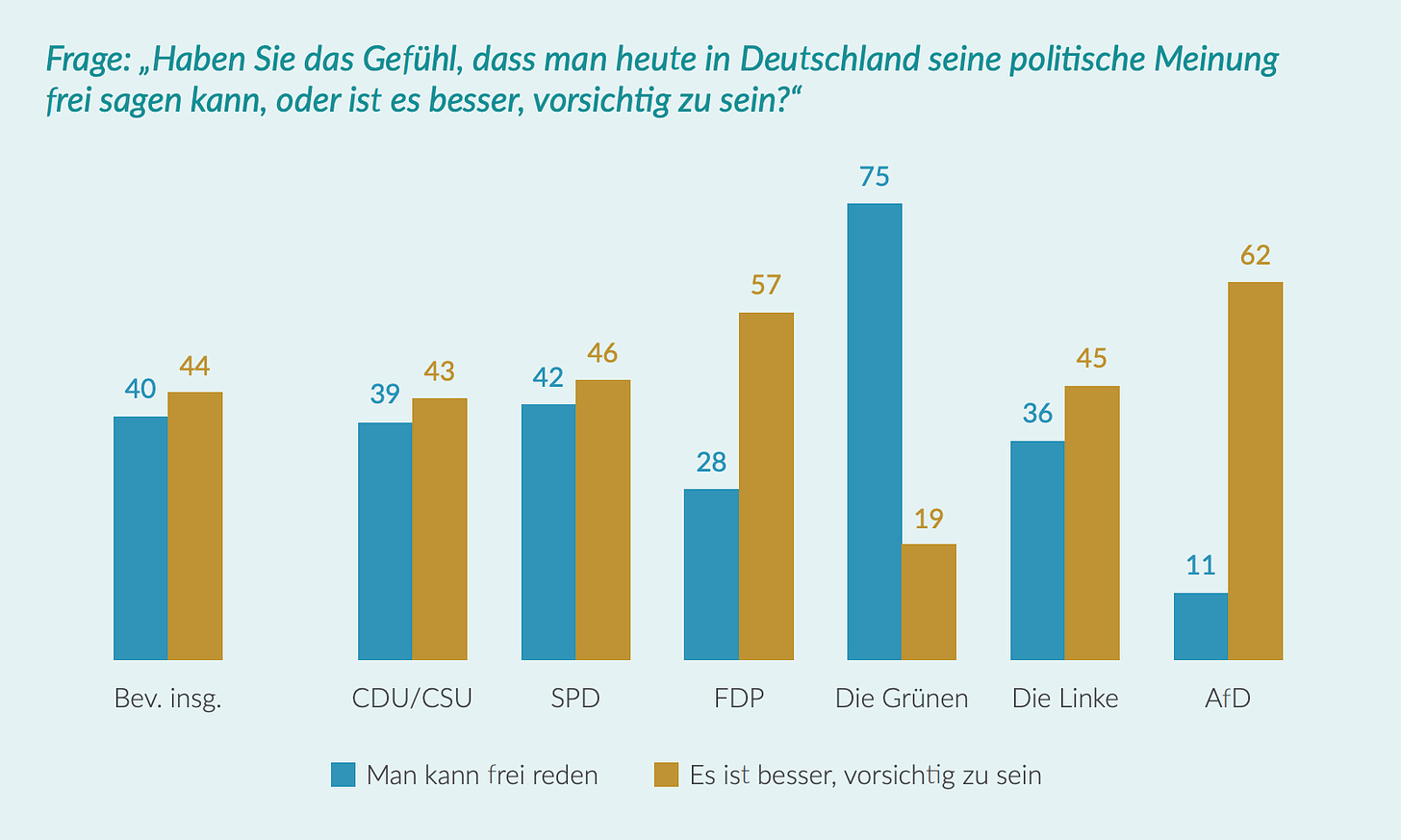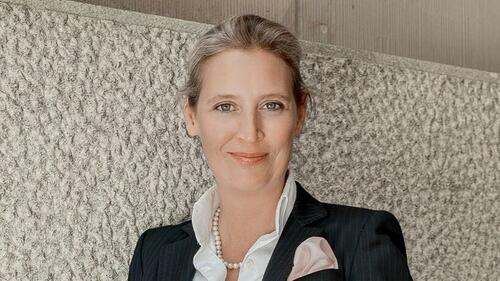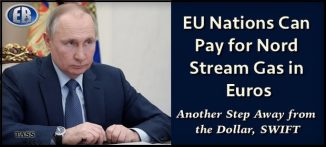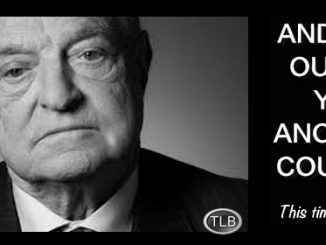
ER Editor: A twofer on the AfD party rising in the polls, as well as the subjective feelings of Germans vis-a-vis ‘freedom’.
On the subject of Germany’s populist-right party, the AfD, they recently scored a victory in the local municipal elections in the town of Pirna, East Germany. See —
Alternative für Deutschland candidate wins mayoral elections in Pirna, the Left declares “Democracy is on fire”

********
Germany’s Anti-Immigration AfD Party Soars To New High In Year-End Poll
Authored by Denes Albert via ReMix News
Germany’s Alternative for Germany (AfD) party has reached 23 percent in a new Forsa poll, marking the highest poll result the party has ever reached for a Forsa poll at the national level.
AfD co-chair Alice Weidel. (afd.de)
The poll, conducted for RTL/ntv’s trend barometer, shows the AfD has gained one point compared to last week, while the Christian Democrats (CDU/CSU) remain the top party in Germany, standing at 31 percent.
Combined, the AfD and CDU/CSU (ER: CDU/CSU are centre-right but globalist) could easily form a coalition government if elections were held now.
Germany, Forsa poll:
CDU/CSU-EPP: 31%
AfD-ID: 23% (+1)
SPD-S&D: 14%
GRÜNE-G/EFA: 13%
FDP-RE: 5%
LINKE-LEFT: 3% (-1)+/- vs. 5-11 December 2023
Fieldwork: 12-18 December 2023
Sample size: 2,501➤ https://t.co/obOCVirJfd #btw25 #Bundestag #Wahlen pic.twitter.com/TyYRuqe909
— Europe Elects (@EuropeElects) December 19, 2023
At the same time, the poll shows the dire state of the ruling coalition, with the Social Democrats (SPD) at 14 percent, the Greens at 13 percent, and FDP at 5 percent. The Left party (Die Linke) lost one point, falling to 3 percent.
The RTL/ntv trend barometer shows a number of hypothetical options for Chancellor, with 15 percent choosing Olaf Scholz, 24 percent Friedrich Merz, and 18 percent Robert Habeck.
In another potential configuration involving Scholz, Merz and Annalena Baerbock, Scholz comes in at 19 percent, Merz at 27 percent, and Baerbock is at 17 percent.
The AfD’s plan to run Alice Weidel in the chancellor position is not reflected as an option in the poll.
The poll also asked whether respondents had the impression that politicians at the federal level understand what “moves” people in their everyday lives, to which 81 percent of Germans answered in the negative.
Source
****
New Survey: Fewer Germans feel free to express their political opinions in 2023 than in any year since the early days of the Federal Republic
The Allensbach Institute for Public Opinion Research regularly polls the German population, among other things to construct a dubious “Freedom Index” for the Federal Republic. This Index purports to measure the social and political status of whatever it is that “freedom” amounts to in Germany, on a scale ranging from -50 to +50.
In case you were wondering, we are currently at -0.8 freedom, down from a high of 6.5 freedom last year.

It is hard not to find this baffling. For example, it emerges that the dark hygiene dictatorship days of 2021 represented a descent merely to -2 freedom, slightly better than the -2.7 freedom we had in 2013 and well up from the -7 freedom in 2014, which I don’t remember as an especially remarkable time. Last year, on the other hand, we enjoyed unprecedented freedom according to the Index, I gather because the media spent a lot of time fulminating about democratic values in response to the Russian invasion of Ukraine. None of that made me feel particularly free, but here I only speak for myself.
Plainly, neither the Allensbach demoscopists nor their Fuggalu indices are to be taken seriously, and yet occasionally they accumulate useful information in their footnotes. Since the 1950s, they have been asking Germans whether they feel they can express their political opinions freely. This is among the data that informs their “Subjective Sense of Freedom” scale, one of three subcomponents that are blended into the Freedom Index. This year, only 40% of their respondents said they felt free to express their political opinions.
Surprisingly, that number – which if anything seems implausibly high to me – actually represents an all-time low:

.
The impression of a closed and stifling discourse is present across the political spectrum.
Only 39% of centre-right CDU voters feel free to express their views, but for Die Linke, or the Left Party (the successors of the East German SED), that number falls to 36%, and for AfD voters it is lowest of all, a mere 11%. A clear majority (75%) of Greens alone feel that they can speak their minds, and so here we learn who feels best represented by our present discourse.

No surprises lurk in the breakdown by education: 51% of those with university degrees or an Abitur feel their political expression is unhampered, while clear majorities of everybody else say they cannot speak their minds.
The historical perspective is sobering. The Federal Republic was only five years old in 1953; the Allied occupation and denazification were recent events, and even then Germans enjoyed a substantially greater subjective sense of political expression than they do today. This sense peaked under Willy Brandt during the Cold War, but has been in a state of decay since the fall of the Berlin wall in 1989. This would be good evidence in favour of Hans-Hermann Hoppe’s thesis, that Western liberal states rapidly lose their enthusiasm for principles like free expression in the absence of competition from rival systems.
Yet it was not the end of the Cold War, but rather the chancellorship of Angela Merkel that saw the most dramatic decline in free political expression. Specifically, Merkel’s strategy of “asymmetric demobilisation,” via which she sought to disarm the leftist opposition by adopting central elements of their political programme, had a very perverse influence. German voters and hence the politicians who appeal to them have always had pronounced conservative tendencies, while the media here as everywhere else lean to the left. Before 2005, politicians provided an important counterweight to the line taken by our press, but Merkel’s triangulations created a new system of soft political enforcement sustained by establishment politicians and mainstream journalism alike.
The consequence is a system that has placed all of us in thrall to the whims of an eccentric minority. The opinions which govern German society, as I’ve written many times before, are not those of most people, but rather of an increasingly insular, university-educated urbanite class, who are relatively affluent, who vote overwhelmingly Green and who constitute no more than 15% of the population. I doubt the old socialist countries of the Warsaw Pact were any different in this respect.
More and more, it feels like we defeated communism only to recreate an equivalent system, which threatens to be much worse, insofar as its informal nature and soft asymmetrical methods confuse everybody and thwart opposition.
(ER: This must have been a cabal-given strategy from a higher and distant place because it, too, has been the strategy of Macron, who was put in place by force during the Hollande government by the Rothschilds – Hollande later claimed he had no choice over accepting Macron into his government. Macron’s approach as president was also ‘governing from the centre’, which sounds more like a way to simply hang onto power through, as eugyppius says, confusion and thwarting opposition. Policy ‘flexibility’ neutralizes real dissent.)
Source
************

••••
The Liberty Beacon Project is now expanding at a near exponential rate, and for this we are grateful and excited! But we must also be practical. For 7 years we have not asked for any donations, and have built this project with our own funds as we grew. We are now experiencing ever increasing growing pains due to the large number of websites and projects we represent. So we have just installed donation buttons on our websites and ask that you consider this when you visit them. Nothing is too small. We thank you for all your support and your considerations … (TLB)
••••
Comment Policy: As a privately owned web site, we reserve the right to remove comments that contain spam, advertising, vulgarity, threats of violence, racism, or personal/abusive attacks on other users. This also applies to trolling, the use of more than one alias, or just intentional mischief. Enforcement of this policy is at the discretion of this websites administrators. Repeat offenders may be blocked or permanently banned without prior warning.
••••
Disclaimer: TLB websites contain copyrighted material the use of which has not always been specifically authorized by the copyright owner. We are making such material available to our readers under the provisions of “fair use” in an effort to advance a better understanding of political, health, economic and social issues. The material on this site is distributed without profit to those who have expressed a prior interest in receiving it for research and educational purposes. If you wish to use copyrighted material for purposes other than “fair use” you must request permission from the copyright owner.
••••
Disclaimer: The information and opinions shared are for informational purposes only including, but not limited to, text, graphics, images and other material are not intended as medical advice or instruction. Nothing mentioned is intended to be a substitute for professional medical advice, diagnosis or treatment.






Leave a Reply